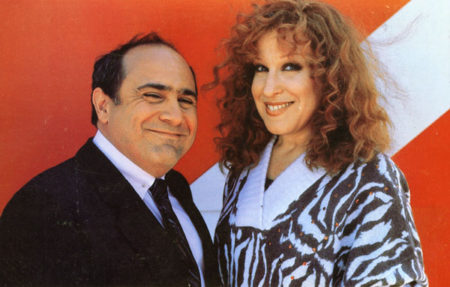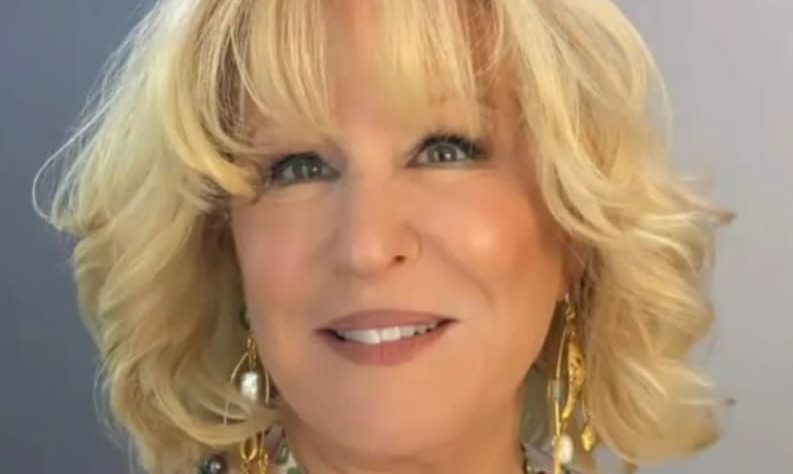Mister D: With the opening of “Burlesque” it was only a matter of time before an article appeared about “singers turned actors.” And here is the first one I’ve seen, thanks to Bettehead Andy, who sent this to my attention. Their list is rather skimpy and I question some of the movies they give as examples, especially Bette’s, but anyway here is the article:
Total Recall: Singers Turned Actresses
With Burlesque hitting theaters, we look at some notable thespians who started out as vocalists.
by Jeff Giles | Wednesday, Nov. 24 2010
Courtney Love
The Opening Act: Love is actually something of an actress-turned-singer-turned-actress — she appeared briefly in a handful of films during the 1980s, including Sid & Nancy — but it wasn’t until she strapped on a guitar and founded Hole that her career really took off. After hitting the charts, it didn’t take long for Love to return to acting — only this time, her fame meant she had a shot at bigger roles.
Perfect Pitch: The People vs. Larry Flynt (1996, 87 percent) Love’s loud, trashy image made her a natural choice for a biopic about the Hustler publisher — but few suspected just how eagerly she’d rise to the challenge of playing Flynt’s wife Althea. It was a role that required a full spectrum of emotions, from manic comedy to tragedy, and Love walked away with it — as well as a Golden Globe nomination and enthusiastic reviews from critics like Rob Blackwelder of SPLICEDWire, who exclaimed, “Wow. Courtney Love can act.”
Wrong Notes: Trapped (2002, 18 percent) She filmed a small part in the 1996 turkey Feeling Minnesota, but in terms of major roles, Love’s acting career hit its nadir with this thriller about a psychopath (Kevin Bacon) and his wife (Love) who kidnap the young daughter (Dakota Fanning) of a successful physician (Stuart Townsend). It was based on a bestselling novel, but that didn’t help Trapped at the box office, where it grossed barely $7 million — or with critics like Entertainment Weekly’s Lisa Schwarzbaum, who bitterly dismissed it as “a negligible work of manipulation, an exploitation piece doing its usual worst to guilt-trip parents.”
Madonna
The Opening Act: Madonna embarked on a solo recording career in 1982, quickly scoring a dance hit with her debut single and setting the stage for a dominating chart run that lasted well into the 1990s. But music superstardom wasn’t enough for Madonna — by 1985, she’d gone Hollywood with a cameo in the high school wrestling drama Vision Quest and scored her first leading role, with the critical and commercial success Desperately Seeking Susan.
Perfect Pitch: Desperately Seeking Susan (1985, 87 percent) It’s always sort of unfortunate when an actor’s first film ends up going down as their best, and Madonna surely believed Desperately Seeking Susan was just the beginning of a long and successful acting career — but even if most of her subsequent movies flopped, this comedy about a bored housewife (Rosanna Arquette) who assumes the identity of a free spirit (Madonna) was a winner with critics like Roger Ebert, who said, “It has its moments, and many of them involve the different kinds of special appeal that Arquette and Madonna are able to generate.”
Wrong Notes: Swept Away (2002, 5 percent) Oh dear. Almost a decade after it was released, it’s still hard to believe anyone responsible for Swept Away really thought it was a good idea. Written and directed by Guy Ritchie, this remake of the 1974 film about an irritating woman (Madonna) shipwrecked on a deserted island with the first mate (Adriano Giannini) was an unqualified bomb, grossing less than $600,000 and earning five Razzies (including Worst Picture and Worst Actress). Calling her “the Vera Hruba Ralston of her time,” Variety’s Dennis Harvey made the bewildered observation, “Madonna has persisted in making movies despite all evidence that this is one medium in which no one wants to see or hear her.”
Bette Midler
The Opening Act: Midler famously found the spotlight as part of a New York City bathhouse duo with Barry Manilow, who produced her 1972 debut album, The Divine Miss M. She’d tasted fame before that, however, as a member of plays both off-Broadway (Miss Nefertiti Regrets) and on (The Fiddler on the Roof) — all of which helped prepare her for chart- and box office-topping reign during the 1970s and 1980s, when she juggled hit films like Down and Out in Beverly Hills with radio favorites such as “Wind Beneath My Wings” and “From a Distance.”
Perfect Pitch: Ruthless People (1986, 90 percent) A rare straight comedy from the Zucker/Abrams/Zucker team, Ruthless People follows the misadventures of a greedy millionaire (Danny DeVito) who plans to have his wife (Midler) murdered, only to discover that she’s been taken by a pair of kidnappers (Judge Reinhold and Helen Slater) who have no idea what they’re in for. Like 1979’s The Rose (which earned her an Oscar nomination), it left plenty of room for Midler’s larger-than-life talent to shine, and audiences were all the richer for it.
Wrong Notes: Big Business (1988, 25 percent) This Lily Tomlin collaboration matched Midler’s other 1988 live-action release, Beaches, for critical futility — but where Beaches earned Midler a #1 single and a pair of Grammys, before turning into a Kleenex-dampening cult favorite, Big Business just sort of limped away from the box office and was forgotten. It’s a shame, given the talent assembled, but the ham-scented comedy and farcical plot (about a pair of twins mixed up at birth) don’t really take advantage of either star’s gifts. As Roger Ebert observed, “This is not funny. It is never funny, in this movie or any other movie.”
Mandy Moore
The Opening Act: Moore rose to prominence as part of the teen dance-pop craze of the late 1990s, scoring her first hit at the tender age of 15 with “Candy.” After making a few minor inroads on Top 40 radio, Moore turned away from the trendy sounds of the day, opting for more introspective (and less commercially successful) recordings while expanding the acting career she kicked off with 2002’s A Walk to Remember.
Perfect Pitch: Saved (2003, 61 percent) After leading roles in a string of fairly innocuous teen-oriented films, Moore played against type as the main antagonist in Brian Dannelly’s Saved!, a religious satire about a high school student (Jena Malone) whose boyfriend (Chad Faust) tells her he’s gay, setting in motion a chain of events that puts them on a collision course with a popular, self-righteous classmate (Moore). Though reviews weren’t overwhelmingly positive, Moore’s performance was generally singled out for praise, and it gave her a chance to flash comedic chops with a sharp, bittersweet script.
Wrong Notes: Because I Said So (2006, 5 percent) Mandy Moore with Diane Keaton and Lauren Graham in a romantic comedy — it should have been a match made in chick flick heaven, right? Nope. Because I Said So — about the struggles of a neurotic mother (Keaton) to relate to her three daughters (Moore, Graham, and Piper Perabo) — was one of the bigger flops of 2007, both with audiences (who ignored it to the tune of a $42 million gross) and critics like Richard Roeper, who stated simply, “I hated this movie.”
Olivia Newton-John
The Opening Act: Olivia Newton-John started her recording career in the mid 1960s, but things didn’t really start taking off for her until the early 1970s, when her cover of Bob Dylan’s “If Not for You” and the Grammy-winning “Let Me Be There” turned the Australian-born singer into a rather unlikely favorite on the American country music charts — and that was before she ruled the pop charts with the record-setting “Physical.”
Perfect Pitch: Grease (1978, 83 percent) She had her doubts about playing a high school student at the ripe old age of 29, but Newton-John needn’t have worried — despite the fact that the “kids” in the cast were all too old for their roles, Grease quickly became the top-grossing movie of the year (and one of the most successful musicals of all time), thanks in large part to the singin’, dancin’ chemistry enjoyed by Olivia and her on-screen beau, John Travolta. Subsequent attempts to revive the musical weren’t so lucky (including the Newton-John-led Xanadu), but Grease’s appeal was too much for even Vincent Canby to deny, as he admitted when he wrote, “Its sensibility is not tied to the past but to a free-wheeling, well informed, high-spirited present.”
Wrong Notes: Two of a Kind (1983, 20 percent) A mere five years after they scored a smash hit with Grease, Newton-John and Travolta reunited for this notorious bomb, a comedy about a failed inventor (Travolta) who discovers that his desperate attempt to rob a bank has been foiled by a duplicitous teller (Newton-John) who pocketed the money for herself — and how their love is all that stands between the Earth and its utter destruction by a vengeful God (Gene Hackman). Doesn’t sound like something you’d ever want to see? Think again, advises Scott Weinberg of eFilmCritic: “The ‘wow’ kind of bad that people still talk about 20 years after the fact. Rent it and see.”








